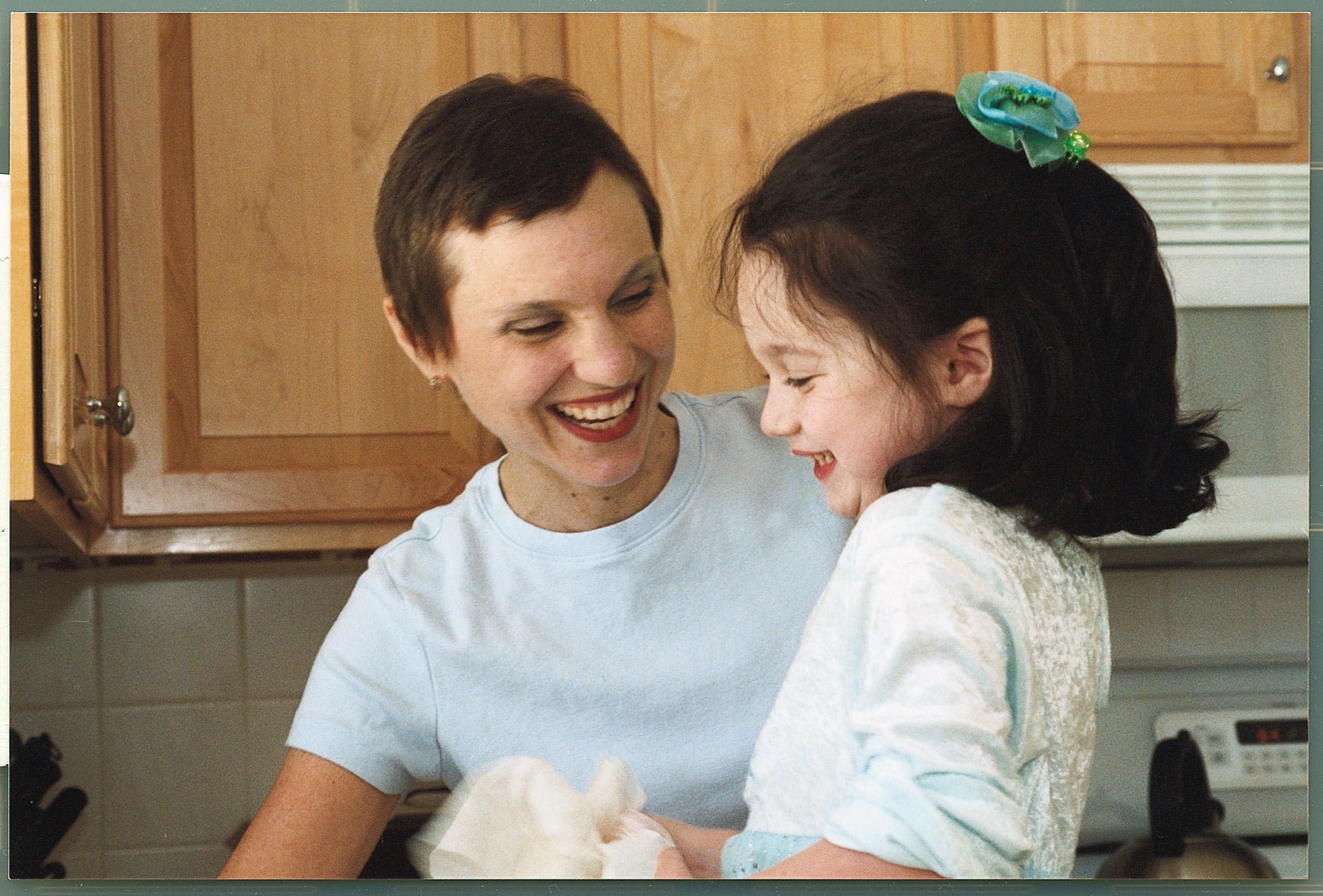Hannah Zagon knows her mommy now gets tired easily because of the ouchies in her head and lungs called cancer. But in the summer of 2000, when Hannah was almost 2, her mother, Melissa Lumberg Zagon ’92, was on the fast track. A self-described type A personality, she was a partner at Goldberg, Kohn, Bell, Black, Rosenbloom & Moritz in Chicago, the firm’s first female partner in litigation. She was juggling an 80 percent schedule at work, the demands of family life and the commute from the suburbs to the city. The pace was taking its toll, and she decided to slow down and join True North Communications as an in-house employment lawyer.
Just a few weeks into her new job, she got a headache so painful she had to leave work and vomited in the car on the way home. She’d had small, infrequent headaches over the previous six months and sometimes a slight tingling in her left arm and a left finger, but the symptoms had always gone away. When this didn’t, she went to the doctor. On Sept. 24, she had an MRI. Less than two hours later, she got a phone call telling her to come to the doctor’s office with her husband.
They had found three lesions on her brain. The largest tumor, the size of a golf ball, had so much swelling around it that the midline of her brain had shifted. After four days of testing, she was told she had stage 4 primary lung cancer that had metastasized to her brain. She was 32 years old.
Later that fall, after having brain surgery to remove the largest tumor, Zagon met Gayle Levy, a 39-year-old, nonsmoking mother of three, who had been diagnosed with lung cancer six months earlier. Together they decided to raise money to find a cure, but they soon realized there wasn’t an organization that targeted donations exclusively for lung cancer research. So, with five other people, they started the LUNGevity Foundation, dedicated exclusively to the research, treatment and cure of lung cancer.
“There is a stigma,” said Zagon. “People don’t necessarily want to contribute to lung cancer research because they think [people bring] it on themselves. But I’m living proof that people don’t bring it on themselves.”
A nonsmoker, from a family of nonsmokers, Zagon had become one of the approximately 22,000 people each year who have never smoked but are diagnosed with lung cancer. The disease is the leading cause of cancer death in the United States, killing more Americans each year than breast, prostate and colon cancers combined. Eighty-five percent of newly diagnosed patients die within five years, yet it receives comparatively few research dollars: In 2001, approximately $1,200 was spent on research per lung cancer death, compared to $8,190 per prostate cancer death and $11,425 per breast cancer death.
LUNGevity planned its first benefit for Oct. 28, 2001, hoping to raise $30,000. The organization grossed nearly five times that amount. With the money from this benefit, the foundation partnered with the American College of Chest Physicians in awarding two $10,000 research grants for lung cancer research. Levy didn’t live to see their success. She died on Aug. 31, 2001.
But the foundation went on. By March 2002, it added an executive director, assembled a board of directors and started exploring other partnership opportunities, with the goal of becoming a national organization. Zagon is still involved in the bigger issues of the foundation, but she has had to step back from the daily operation to focus on her health. Since her diagnosis in September 2000, she has had three different treatments, with varying degrees of success, and the fluid is back in her lungs and the disease is in her brain. She knows her prognosis is not good, but she says she is “hopeful, guardedly hopeful.” She has already lived longer than most people diagnosed with stage 4 cancer do, and says she is “just going to give it every shot that I have. And keep trying.”
She and her husband, Glenn, bought a new house, and in February, she signed Hannah up for kindergarten. She’s trying to do everything she can to make her daughter’s life as normal as possible. But when Hannah throws her penny in the fountain at the mall, her wish is always the same.
